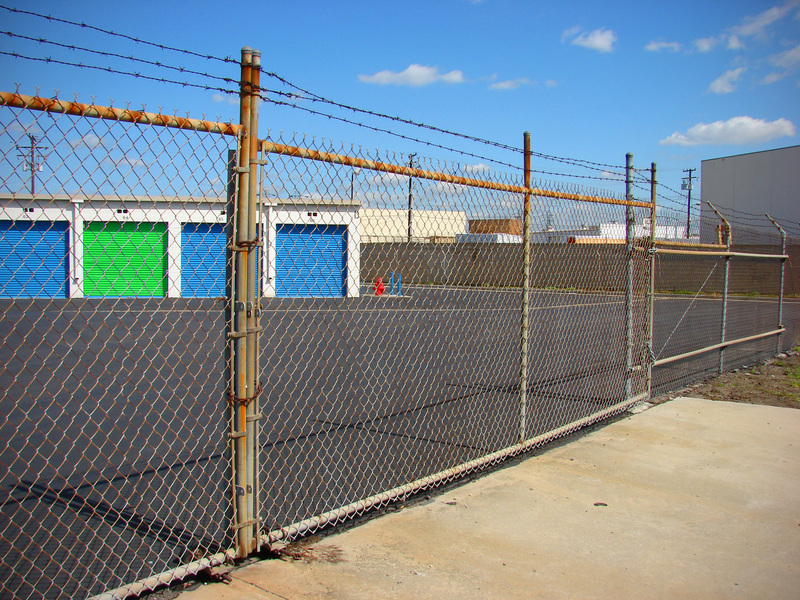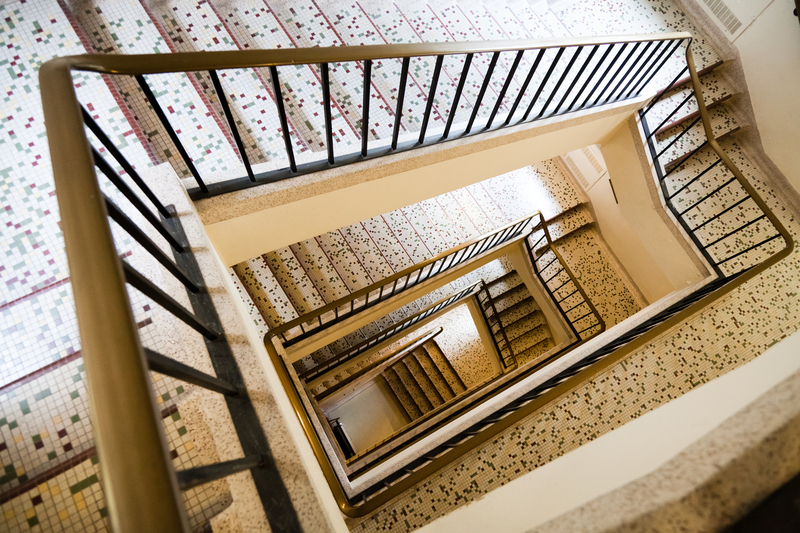The Art and Science Behind Professional Piano Moving
Posted on 19/06/2025
Moving a piano is more than just a practical task--it's a unique blend of skill, strategy, and precision. Whether it's a grand, upright, or baby grand, every piano carries not only significant monetary value but also immense emotional importance. That's why professional piano moving is recognized as both an art and a science. In this article, we'll explore what makes this specialized process so intricate, how experts approach the challenge, and why it's worth trusting professionals with your treasured instrument.
Why Is Piano Moving Different from Regular Moving?
Pianos are not ordinary pieces of furniture. They are delicate musical instruments with intricate internal mechanisms and substantial weight. Unlike most household items, pianos can weigh between 300 and 1,200 pounds, and their shapes make them awkward to lift and transport. The art and science behind professional piano moving stems from the need to protect both the instrument and the property--from tight doorways to winding staircases.
Key Challenges in Piano Moving
- Weight and Size: Pianos vary from manageable uprights to massive concert grands.
- Fragility: Susceptibility to damage in both external finish and internal action mechanisms.
- Unwieldy Shape: Bulky design complicates navigation through doorways, stairs, and elevators.
- Value: Both sentimental and financial loss can result from improper handling.
- Complex Assembly: Grand pianos require partial disassembly and expert reassembly at the destination.

Step-by-Step Guide: The Professional Piano Moving Process
Every piano moving company employs a thorough process to ensure safe and secure transportation. Here's how the pros do it:
1. Pre-Move Assessment and Preparation
The process begins long before a single finger is laid on the piano. Movers will:
- Evaluate the piano's type, size, and weight.
- Inspect the pathways--measuring doorways, corridors, and stairways.
- Plan the best route with minimal risk of bumps or impact.
- Assemble a team with the necessary strength and expertise.
- Prepare specialized moving equipment: heavy-duty straps, skid boards (piano boards), dollies, and moving blankets.
Professional piano movers know that meticulous mapping and preparation reduce the risk of last-minute surprises.
2. Disassembly of the Piano (When Required)
For grand and baby grand pianos, movers often have to remove the legs, pedals, and music stand. This process requires precise handling to ensure that no part is scratched, bent, or broken.
- All hardware is carefully labeled and packed.
- Components are wrapped in protective padding.
- Main body is secured to a skid board for stable movement.
Upright and spinet pianos usually do not require disassembly, but still need careful handling to avoid jostling internal components.
3. Safe Lifting and Moving Techniques
Science comes into play when applying leverage and balance during piano transport. The team uses:
- Correct lifting posture: Protects both the piano and the movers themselves from injury.
- Team coordination: Strong communication ensures that all movers lift and move in sync, especially on stairs or uneven surfaces.
- Use of equipment: Straps, dollies, and boards reduce direct lifting and provide secure bracing for heavier sections.
Professional piano moving is a dance of physics, requiring both strength and coordination.
4. Secure Loading and Transportation
After safely moving the piano to the moving truck, professionals:
- Use heavy-duty ramps or lift gates for loading.
- Position the piano upright and immobilize it with braces or straps to prevent shifting during transit.
- Add extra padding and moving blankets for shock absorption.
- Maintain a controlled environment (temperature and humidity) to protect the piano's sensitive wood and strings during longer relocations.
The science of vibration and impact mitigation ensures your instrument remains unscathed throughout the journey.
5. Reassembly and Post-Move Inspection
Upon arrival, professional piano movers carefully reverse the process:
- Reassemble any parts that were removed.
- Inspect for any signs of damage or misalignment.
- Place the piano in its desired location, using furniture pads to protect floors.
- Recommend waiting for temperature stabilization before tuning, as slight movement may temporarily affect sound.
This comprehensive approach highlights the true artistry in professional piano relocation.
The Specialized Equipment of Piano Movers
The science behind piano moving lies not just in technique, but in specialized tools designed for safety and efficiency.
- Piano Skid Boards: Also called piano boards, these are thick, slotted boards that support the main body of grand pianos during transport.
- Heavy-Duty Straps: Adjustable and strong, these keep the piano securely strapped to the skid board or moving dolly.
- Moving Dollies: Multi-wheeled platforms that bear the piano's weight, allowing smooth rolling across floors.
- Ramps and Lift Gates: Essential for loading into trucks without jarring the instrument.
- Protective Blankets and Wraps: Thick, padded materials to prevent scratches, dents, and shock.
Ordinary household moving equipment simply cannot match the capabilities of these specialized piano moving tools.
The Human Factor: Skill, Experience, and Teamwork
Even with the best equipment, the real art of professional piano moving comes from the movers themselves. It takes years of experience to:
- Read spatial challenges and adapt on the fly.
- Communicate effectively in high-pressure situations.
- Maintain nerves and steady hands in tight spaces or steep stairwells.
- Understand the anatomy of each piano, from action mechanisms to bespoke finishes.
In the hands of trained artisans, each move becomes a precision operation, treated with the respect worthy of the instrument.
Risks of DIY Piano Moving
Many homeowners contemplate moving their pianos with the help of friends or family. However, the risks far outweigh perceived savings:
- Personal Injury: Heavy lifting without training can result in crushed hands, back injuries, or worse.
- Instrument Damage: Even minor bumps can knock piano keys or actions out of alignment, requiring costly repairs.
- Property Damage: Walls, floors, and staircases can be gouged or scratched by an uncontrolled piano.
- Lack of Liability Coverage: Professional movers are insured; amateur attempts are not.
Ultimately, the science and art of piano moving ensure not only the well-being of your instrument but all involved.
Choosing the Right Professional Piano Movers
Finding the right piano moving specialists is as crucial as the move itself. Here's what to look for:
- Experience: Years in the industry and positive customer reviews speak volumes.
- Specialization: Ask if they only move pianos, or if they handle other specialty moves.
- Insurance: Ensure your piano is fully covered throughout the move.
- Professional Equipment: Confirm they use specialized piano moving gear.
- References: Request testimonials from satisfied clients.
The best professional piano movers treat each instrument as a work of art--because to true musicians and enthusiasts, that's exactly what it is.

Frequently Asked Questions About Piano Moving
How much does professional piano moving cost?
Piano moving prices vary based on piano size, distance, complexity, and whether there are stairs or tight corners involved. On average, local moves range from $200-$500, while long-distance or complex moves can cost $1,000 or more.
Will my piano need tuning after moving?
Most pianos require tuning after any significant move--vibration and changes in temperature or humidity can affect their pitch and tone. Experts recommend waiting a week or two for the piano to acclimate before calling a tuner.
Can all pianos be moved without disassembly?
Upright and spinet pianos are generally moved intact. Grand and baby grand types usually require some disassembly (removing the legs, pedals, and music stand) for safe transport, especially through narrow or tricky spaces.
Is climate control important during piano moving?
Absolutely. Wood and strings are sensitive to sudden changes in temperature and humidity. Reputable movers use climate-controlled vehicles for long-distance or storage moves.
Conclusion: Trust the Experts with Your Piano's Journey
The art and science behind professional piano moving cannot be overemphasized. Every move is a carefully orchestrated operation, blending specialized equipment, years of hands-on expertise, and a deep respect for the instrument's value. While it may be tempting to attempt a piano move solo, the potential risks--financial, physical, and emotional--are substantial.
For peace of mind and the continuing health of your prized instrument, always partner with experienced piano moving professionals. In their capable hands, your piano will sing in its new home, damage-free and in perfect harmony.
Preserve the legacy of your piano--move it with the care of a true artisan, backed by the precision of science.
Latest Posts
How to Tackle Packing for a Seamless House Move
The Art and Science Behind Professional Piano Moving
Pro Tips for Effortless Mattress and Bed Moving





